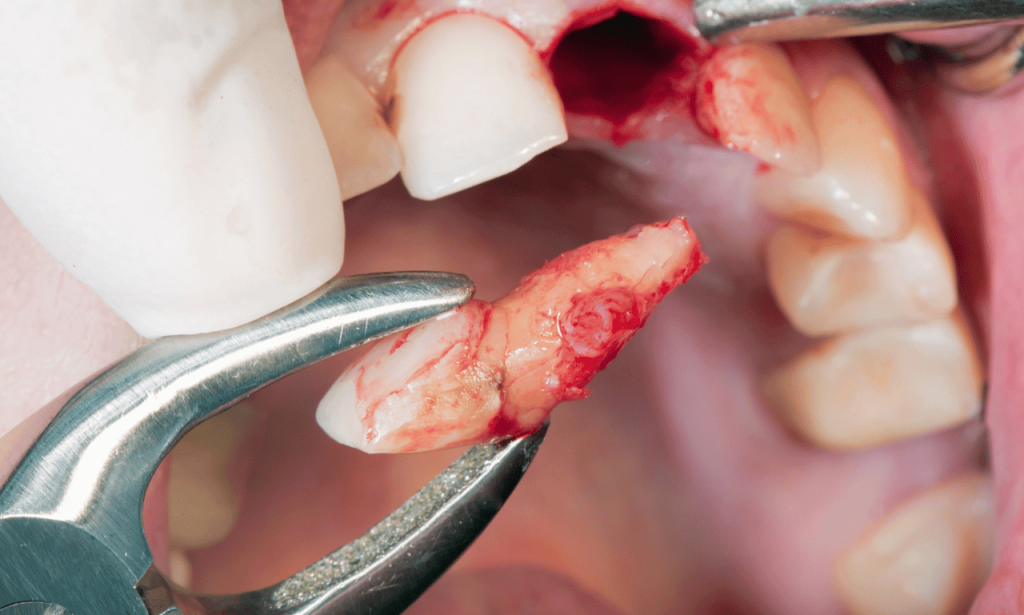Tooth extraction, a common dental procedure, may sometimes leave patients wondering when they can resume drinking alcohol. This article will explain the best practices for consuming alcohol after tooth extraction, considering factors like a dry socket, the healing process, the use of pain medication, and much more. When can I drink after tooth extraction: Is alcohol safe?
Whether it’s a casual glass of wine or your favorite cold beer, the timing of when you can indulge safely is critical to ensuring a smooth recovery.
While alcohol might be something you enjoy, drinking it too soon after tooth extraction can interfere with the healing process and cause various complications.
The Healing Process: Why Timing is Critical

After a tooth extraction, the body begins the healing process immediately. A crucial part of that healing is the formation of a blood clot in the socket where the tooth was removed. This blood clot is essential because it protects the underlying bone and nerve endings, forming a foundation for the granulation tissue that will eventually heal the extraction site.
Drinking alcohol, especially within the first 24 to 72 hours post-extraction, can disrupt the healing process and delay recovery. Alcohol is a vasodilator, meaning it widens blood vessels, which can potentially cause the blood clot to dislodge or dissolve. This, in turn, may lead to a painful condition called dry socket, where the underlying bone and nerves are exposed, resulting in extreme discomfort and prolonged healing time.
Enhance your recovery and take your oral health to the next level with trusted dental products. Discover more by following this link today!
Dry Socket: A Painful Condition
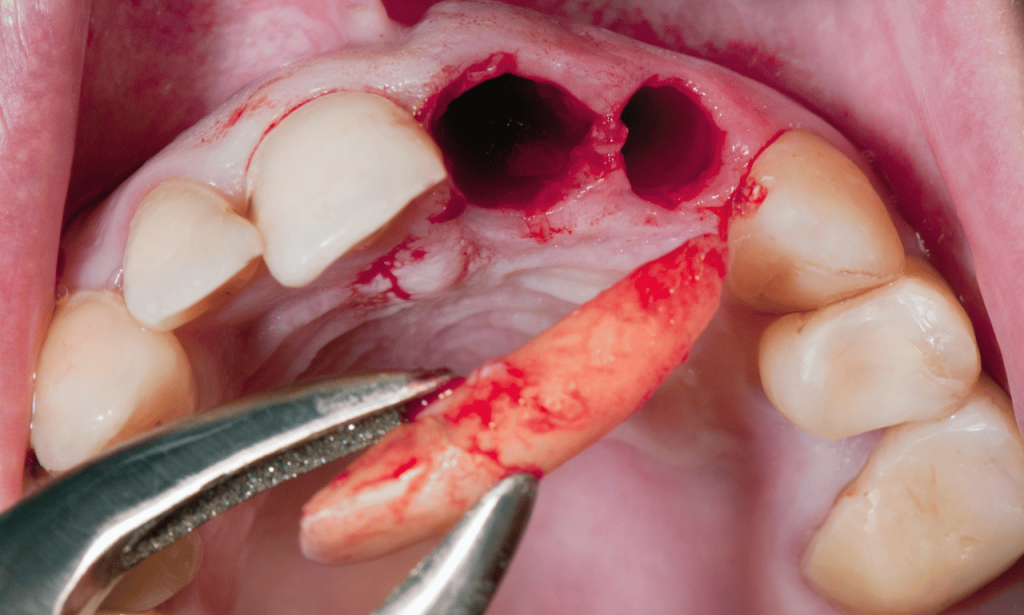
One of the main concerns associated with alcohol consumption after tooth extraction is a dry socket. When the blood clot at the extraction site becomes dislodged or fails to form properly, it leaves the underlying bone and nerves exposed. This not only leads to excruciating pain but also increases the risk of infection. Dry socket can extend the recovery process and may require additional treatment by your oral surgeon.
Because alcohol can affect blood clot formation, it is strongly advised to avoid alcohol consumption during the critical period when the blood clot is forming and stabilizing. Pain relievers prescribed by your oral surgeon or dentist may also interact negatively with alcohol, further complicating the situation.
Alcohol and Pain Medication: A Dangerous Combination
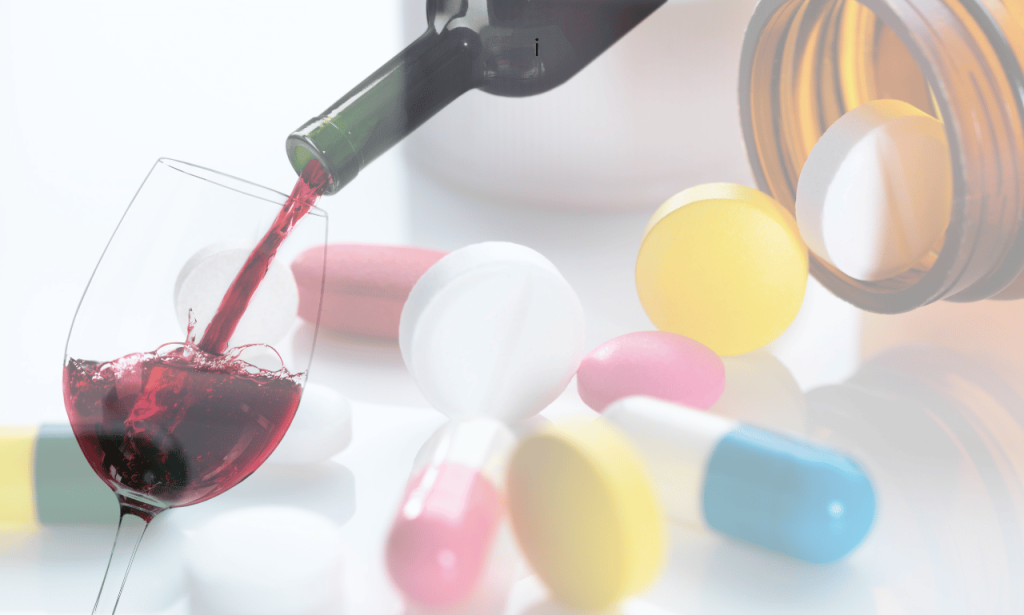
After a tooth extraction, your dentist or oral surgeon may prescribe pain medications to manage discomfort. These medications may include over-the-counter pain relievers like ibuprofen or stronger prescription drugs. Combining alcohol with pain medication can be dangerous for various reasons:
- Increased Side Effects: Alcohol can amplify the side effects of pain medication, leading to dizziness, drowsiness, and a higher risk of accidents.
- Liver Strain: Both alcohol and many pain medications are processed by the liver. Consuming alcohol while on pain medication can put extra strain on the liver and potentially lead to liver damage.
- Dehydration: Alcohol causes dehydration, which can impair the healing process. Staying hydrated is key to a smooth recovery.
Given these risks, it is essential to follow your dentist’s instructions carefully and avoid alcohol while taking pain medications, as it can hinder your recovery and put your health at risk.
Alcoholic Beverages and the Risk of Infection
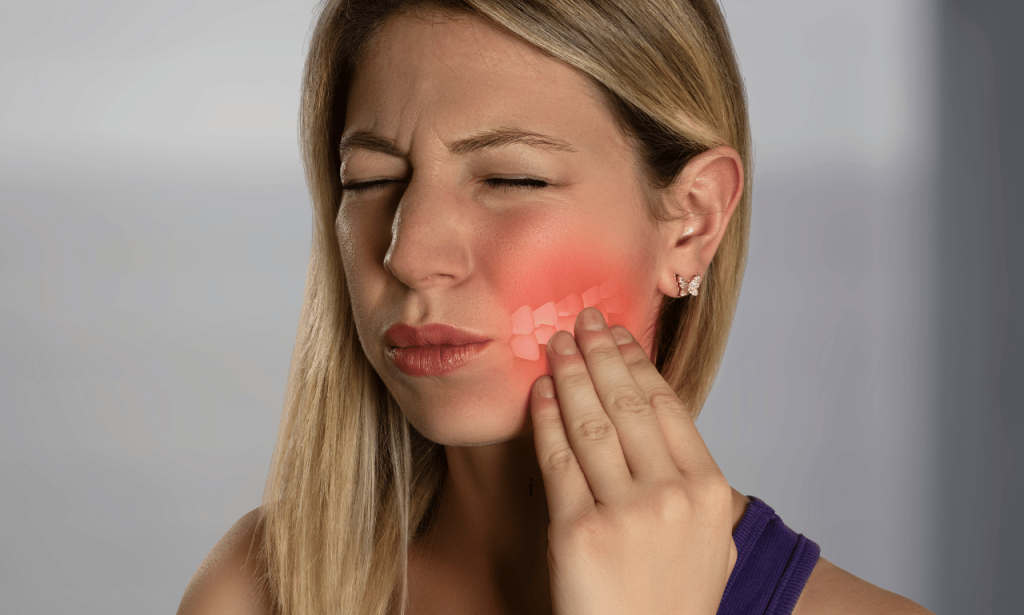
Beyond the immediate threat of a dry socket, drinking alcohol after tooth extraction also increases the risk of bacterial infections. Alcohol can weaken your immune system, making it harder for your body to fight off bacteria. The open wound left behind after tooth removal is particularly vulnerable to infection, and consuming alcohol before it has fully healed can introduce harmful bacteria into the extraction site.
Alcohol also dehydrates the body, which can slow down the healing process. It is vital to drink plenty of water during recovery to keep the body hydrated and maintain optimal oral health.
How Long Should You Wait Before Drinking Alcohol?
The general rule of thumb is to wait at least 7 to 10 days after a tooth extraction before consuming alcohol. However, this timeframe can vary depending on the complexity of the extraction and your healing progress. For instance, wisdom teeth removal or surgical extractions might require a longer recovery period than simple extractions. Always consult with your dentist or oral surgeon for specific instructions based on your situation.
During this critical period, it is essential to focus on hydration and avoid alcohol entirely. Instead, choose drinks that support your recovery, such as:
- Water: The best option for staying hydrated.
- Herbal teas: Non-caffeinated and soothing.
- Fruit juices: Be cautious with acidic juices like orange juice, as they can irritate the surgical site.
The Impact of Hot Liquids and Alcohol on Healing

Hot beverages such as hot coffee, hot tea, or hot soup can also be problematic after a tooth extraction. Just like alcohol, hot liquids can interfere with the formation of the blood clot and increase the risk of a dry socket. If you are craving a warm drink, wait until the healing process is well underway before indulging.
Soft Foods for a Smooth Recovery
In addition to avoiding alcohol, you should also be cautious about the foods you consume during the initial recovery period. Stick to soft foods that are easy to chew and won’t irritate the surgical site. Some good options include:
- Cottage cheese
- Mashed potatoes
- Yogurt
- Smoothies (without a straw, as the sucking motion can dislodge the blood clot)
- Applesauce
Avoid spicy foods, crunchy foods, and foods that require excessive chewing, as these can cause discomfort or disrupt the healing process.
Sucking Motions and the Risk of Dry Socket
It’s not just alcohol and hot beverages that can cause complications after tooth extraction. Using a straw to drink, smoking, or even spitting forcefully can create a sucking motion that dislodges the blood clot, leading to dry socket. Always follow your oral surgeon’s or dentist’s instructions to ensure the clot remains intact for proper healing.
Oral Hygiene During Recovery
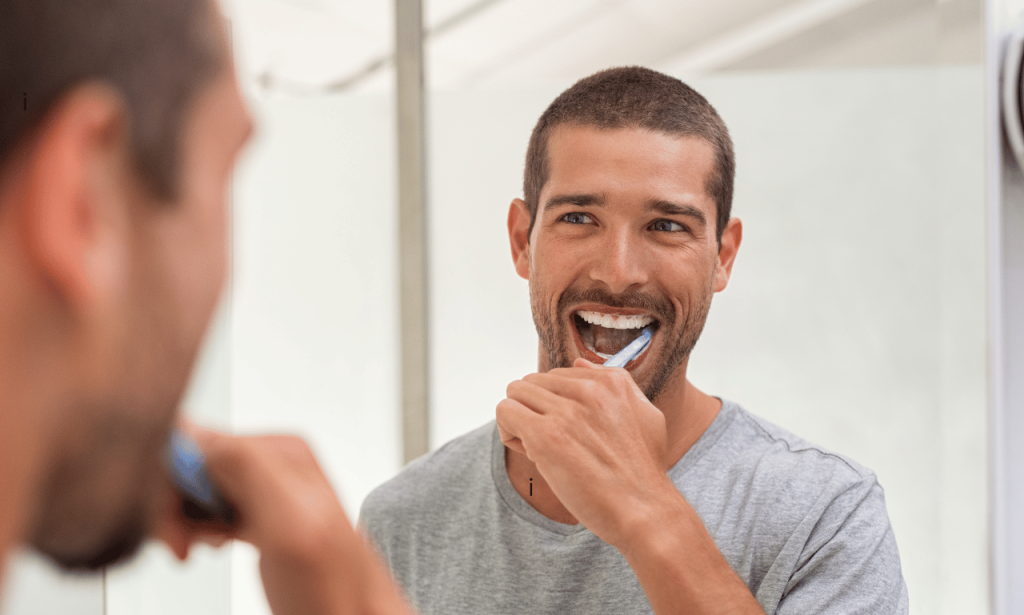
Maintaining good oral hygiene is essential after tooth extraction to prevent infection. Use a soft-bristled toothbrush and avoid brushing directly over the extraction site for the first few days. Your dentist may recommend rinsing with warm saltwater to keep the area clean without disturbing the blood clot.
Alcohol and Its Effects on the Immune System
Alcohol weakens the immune system, which is especially concerning after an oral surgery like tooth extraction. A weakened immune system makes it harder for your body to fight off potential infections. This is why it is recommended to avoid alcohol not just for a few days but until you’ve fully healed from the procedure.
Follow-Up Appointments and Specific Instructions
After your tooth extraction, your dentist or oral surgeon will likely schedule a follow-up appointment to monitor your recovery. This appointment is crucial for ensuring that the extraction site is healing properly and that there are no signs of complications such as infection or dry socket. During this visit, your dentist will also give you specific instructions about when it’s safe to resume normal activities, including alcohol consumption.
Cold Beverages: A Better Alternative?
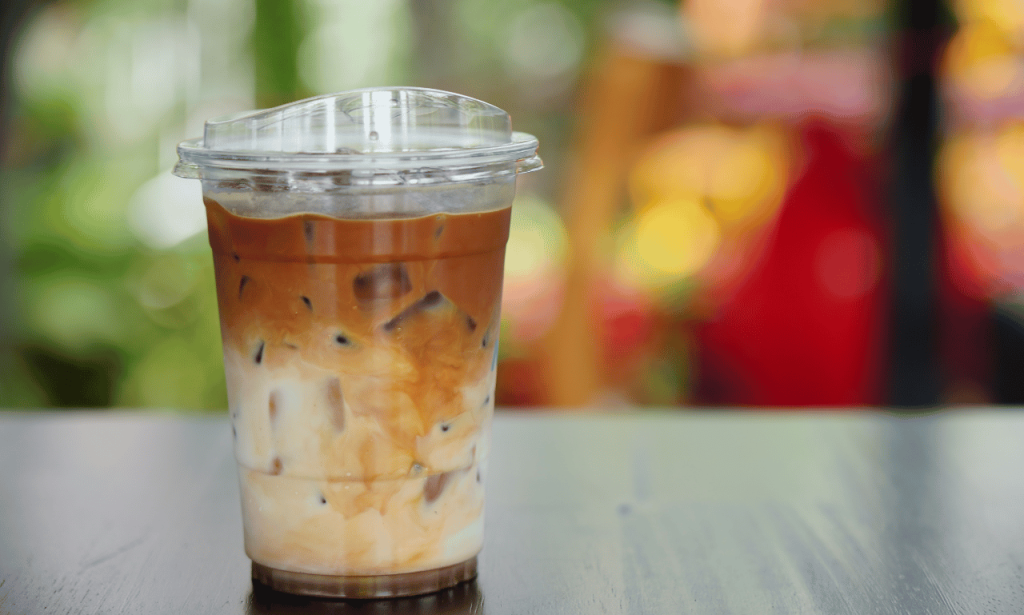
If you’re looking for something refreshing during your recovery, cold beverages like iced coffee or iced tea can be a better alternative to alcohol. Cold drinks can soothe the surgical site and reduce swelling, especially when consumed in moderation. Just be mindful of using a straw, as the sucking motion can disrupt the blood clot.
Alcohol Causes Dehydration: Why That Matters
One of the reasons alcohol should be avoided after tooth extraction is because it causes dehydration, which can hinder the healing process. Staying hydrated is essential for maintaining granulation tissue and ensuring that the body has the fluids it needs to recover. Drink plenty of water and avoid anything that could dry out your mouth, such as alcohol or excessive caffeine.
Wisdom Teeth Removal: A Special Case
For individuals who have undergone wisdom teeth removal, the recovery process can be more extensive than for simple extractions. Wisdom teeth are often impacted, meaning they require more invasive surgery to remove. This results in a longer recovery period and a higher risk of complications such as a dry socket. For this reason, avoiding alcohol for at least 10 days post-surgery is recommended to ensure a smooth recovery.
Pain Management Without Alcohol
While the urge to drink alcohol for relaxation might be strong, especially if you’re used to having a glass of wine or a bottle of beer with dinner, it’s essential to manage pain in healthier ways. Instead of turning to alcohol, consider the following pain management strategies:
- Ice packs: Applying ice to the affected area can reduce swelling and numb the pain.
- Over-the-counter pain relievers: Follow your dentist’s advice for using medications like ibuprofen or acetaminophen.
- Rest: Giving your body time to heal is one of the best ways to manage pain and promote recovery.
A Smooth Recovery for Optimal Oral Health
To ensure a successful recovery and return to optimal oral health, it’s important to avoid alcohol during the initial recovery period. Once your oral surgeon or dentist has given you the green light, you can slowly reintroduce alcohol into your routine. However, even then, moderation is key to ensuring that your mouth heals properly without any setbacks.
Conclusion: When Can You Drink Alcohol After Tooth Extraction?
The short answer is to avoid alcohol for at least 7 to 10 days after tooth extraction, or until your oral surgeon or dentist advises that it’s safe. Drinking alcohol too soon can disrupt the formation of the blood clot, increase the risk of dry sockets, and interfere with your body’s healing process.
If you’re looking to enjoy a drink after your recovery, be sure to consult your dentist or oral surgeon, especially if your extraction was part of a more extensive orthodontic treatment or involved surgical extractions. Your best interest is to prioritize your health during this crucial recovery period.
If you need further dental products for a healthier recovery, click this link for more information on improving your oral health.
FREQUENTLY ASKED QUESTIONS
Is alcohol OK after tooth extraction?
- No, alcohol should be avoided for at least 24 to 72 hours after tooth extraction to prevent complications like dry socket and delayed healing.
How long after dental work can you drink alcohol?
- It would help if you waited at least 24 to 72 hours after dental work before drinking alcohol, depending on your dentist’s instructions.
How long after tooth extraction can I use mouthwash with alcohol?
- It’s best to avoid mouthwash with alcohol for several days after extraction. Use a saltwater rinse instead until your dentist approves.
Can I drink alcohol 24 hours after tooth extraction (forum)?
- While some forums may suggest it’s okay, waiting at least 72 hours or following your dentist’s advice to avoid complications is safer.


